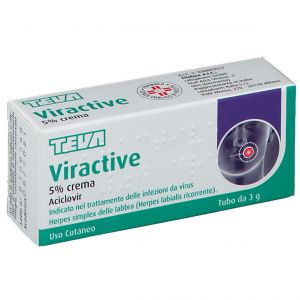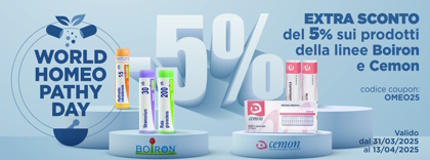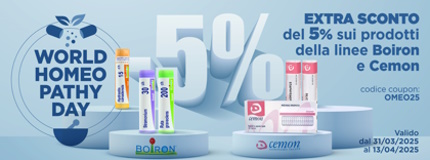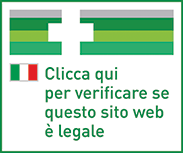Ship in Europe, Find out rates!
Viractive Aciclovir 5% Cream Against Herpes Tube 3 g

- box Delivery in Italy in 24/48 and free returns
- star3.000+ positive reviews
- dropboxOver 60,000 products in the catalog
Therapeutic indications
Viractive 5% cream is indicated in the treatment of Herpes simplex virus infections of the lips (recurrent Herpes labialis).
Dosage
Adults and adolescent children (over 12 years of age): Viractive 5% cream should be applied 5 times a day at intervals of approximately 4 hours, omitting the nocturnal application. The cream should be applied as early as possible, preferably during the earliest stages (prodrome or erythema). However, treatment can also be started in the later stages (papules or vesciole). Treatment should continue for 5 days. If healing does not occur, the treatment can be continued for a further 5 days. If after 10 days the lesions are still present it is recommended that patients consult their doctor. Patients should wash their hands before and after applying the cream and avoid unnecessarily rubbing the lesions or touching them with a towel in order to avoid worsening or transmission of the infection. Children under the age of 12. The safety and efficacy of Viractive have not been studied in patients less than 12 years of age.
Overdose
Even if the entire contents of a tube containing 150 mg of aciclovir (cream) are ingested, no side effects should be expected.
Contraindications
Viractive is contraindicated in patients with known hypersensitivity to aciclovir, valaciclovir, propylene glycol and to any of the excipients. Children under the age of 12.
Side effects
The following convention has been used for the classification of undesirable effects in terms of frequency: very common> 1/10, common> 1/100 and <1/10, uncommon> 1 / 1,000 and <1/100, rare> 1 /10,000 and <1 / 1,000, very rare <1 / 10,000. Data from clinical trials were used to assign frequency categories to adverse reactions observed during clinical studies performed with aciclovir 3% ophthalmic ointment. Due to the nature of the adverse events observed, it is not possible to uniquely determine which events are related to drug administration and which are related to the disease itself. Data from spontaneous reporting was used as a basis for determining the frequency of those events detected by post-marketing pharmacovigilance. Skin and subcutaneous tissue disorders : Uncommon: • Transient burning or pain after application of Viractive • moderate dryness or peeling of the skin • itching Rare : • erythema • contact dermatitis following application. Where sensitivity tests were conducted, it was shown that the substances giving reactivity phenomena were the components of the base cream rather than acyclovir. Immune system disorders Very rare : • immediate hypersensitivity reactions including angioedema and urticaria
Pregnancy and breastfeeding
Pregnancy The use of aciclovir should only be considered if the potential benefits outweigh the possibility of unknown risks, however systemic exposure to aciclovir from topical application of aciclovir cream is very low. A pivotal post-marketing pregnancy study with aciclovir documented pregnancy outcomes in women exposed to any formulation of aciclovir. The conclusions of the pivotal data did not show an increase in the number of congenital anomalies in subjects exposed to aciclovir compared to the general population, and the observed congenital anomalies did not reveal characteristics of uniqueness or concordance that would suggest a possible common cause for their onset. Systemic administration of aciclovir in internationally accepted standard tests did not produce embryotoxic or teratogenic effects in rabbits, rats or mice. In a non-standard test in rats, fetal abnormalities were observed but only following subcutaneous doses so high as to induce maternal toxicity. The clinical relevance of these findings is uncertain. Breastfeeding Limited human data show that the drug passes into breast milk after systemic administration. However, the dose received by a nursing infant after the mother's use of aciclovir cream would not be significant. Fertility There are no data on the effects of aciclovir cream on female fertility. Aciclovir cream has not been shown to have an effect on sperm count, morphology and motility in humans (see also section 5.3).
Special warnings
Viractive should only be used for cold sores present on the lips. Viractive is not recommended for application on mucous membranes, such as in the mouth, eyes or vagina, as it can be irritating. Pay particular attention to avoid accidental introduction into the eye. It is recommended that people with particularly severe forms of recurrent cold sores consult their doctor. The use, especially if prolonged, of the product can give rise to sensitization phenomena. If this happens, the treatment must be interrupted and the attending physician consulted. It is recommended that those suffering from cold sores avoid transmission of the virus especially when active lesions are present. In severely immunocompromised patients (e.g. AIDS or bone marrow transplant patients), oral aciclovir should be considered. These patients should be encouraged to consult a physician regarding the treatment of any infection. Important information about some of the excipients The excipient propylene glycol can cause skin irritation and the excipient cetostearyl alcohol can cause local skin reactions (eg contact dermatitis).
Expiry and Retention
Store at a temperature not exceeding 25 ° C.
Active principles
100 g of cream contain : Active ingredient Aciclovir 5.00 g (equal to 50 mg of Aciclovir in each g of cream). Excipients : Propylene glycol 20.0 g Cetostearyl alcohol 6.75 g
Excipients
100 g of cream contain : Excipients Poloxamer 407, Cetostearyl alcohol, Sodium laurilsulfate, White Vaseline, Liquid paraffin, Propylene glycol, Sucrose Monopalmitate, Purified water


